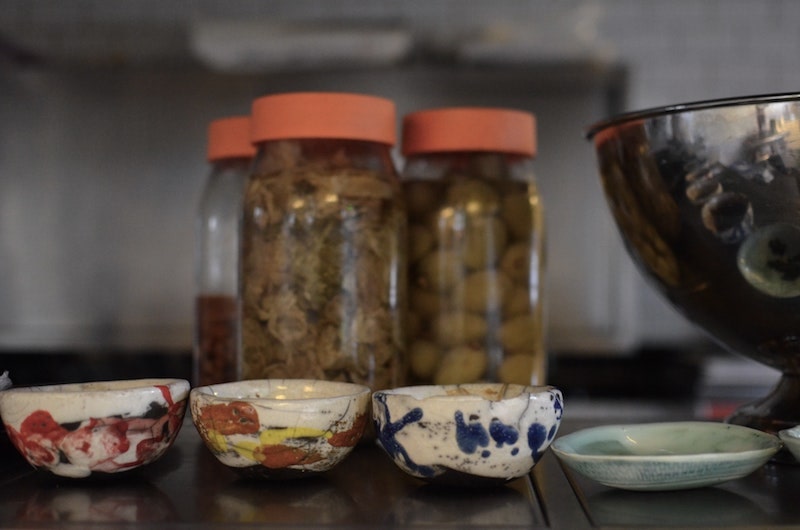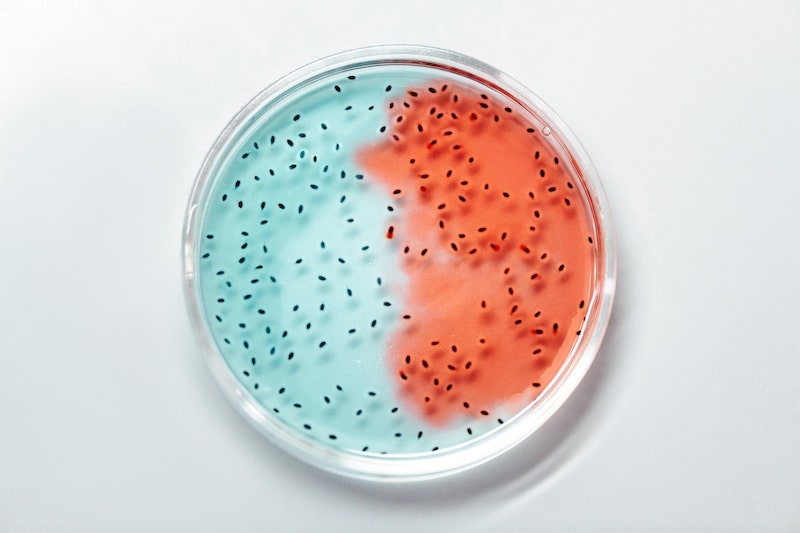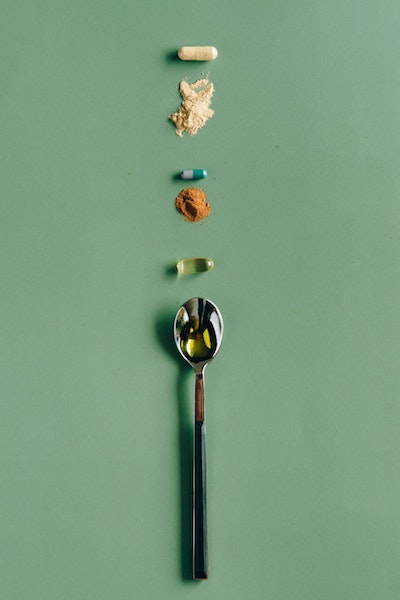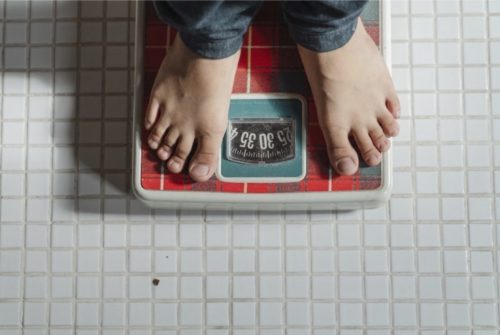
Does it ever seem like our culture is designed to stress you out? At Betr Health, we recognize this phenomenon and have given it a name, the DIS in DISease.. The “DIS” stands for Doubt, Inflammation, and Stress and it describes how our modern and industrialized society affects our mental and physical well-being through environmental and emotional toxicity.
Because DIS (Doubt, Inflammation and Stress) works at so many levels, it may seem hopeless. But, there IS an answer! Research has shown that the bacteria in our gut impact more than just our physical health. In this article, we’ll review the real connection between our gut health and anxiety disorders, and make some suggestions on how to take care of both. We’ll cover:
- Gut health anxiety connection: is there a link between your microbiome and stress?
- How does poor gut health make anxiety worse?
- How to manage anxiety with proper gut health
- 3 studies that link gut health to anxiety
Keep reading to hear how a healthy gut supports a healthy mind
Gut health anxiety connection: is there a link between your microbiome & stress?
It may seem hard to believe that poor gut health can cause anxiety, but it does. 90% of our serotonin, our “happy hormone”, is produced in the gut! The relationship is so significant that researchers have given it a name, the “Gut-Brain Axis” (GBA).
When the GBA is healthy, our beneficial gut bacteria release health substances called metabolites. These metabolites are ingredients and messengers in the production of mood-improving hormones and healthy nerve cells. Our gut microbiota also supports our overall well-being by boosting our immune system and fighting inflammation
But, what happens when the GBA goes bad?
How does poor gut health make anxiety worse?
When the environment in our gut is diseased or disrupted it starts producing harmful metabolites instead of healthy ones. These unhealthy metabolites start the cycle of inflammation. Once inflammation starts, all bets are off!
An inflamed gut is a “leaky gut”. It sounds gross, and it is. “Leaky Gut Syndrome” is what happens when the cell walls in our digestive system start letting things into the gut that shouldn’t be there, and things out that should stay in the gut. In the body, substances being in places where they shouldn’t result in more inflammation.
As we cover in our article Listening to Your Gut, inflammation has effects outside of the gut, too. The substances leaking out of the gut can result in joint pain, skin sensitivity, and, of course, anxiety. Not only does the lack of healthy metabolites reduce nerve and hormone function, but the unhealthy substances released from the gut further interfere with healthy functioning in the brain, resulting in anxiety and difficulty managing stress.
How to manage anxiety with a proper gut health diet
There is good news, though! At Betr Health, we’ve seen the DIS in DISease, and specifically Stress and Inflammation, reversed through natural, gut-healing practices. But this isn’t just our observation- it’s backed by science.
In studies on mice at Cornell University, researchers found that when the disruption of gut bacteria was reversed, symptoms of stress and anxiety were also reversed. Which means that there is hope for a healthy gut curing anxiety! We’ve seen our own Betr Health members overcome stress and anxiety through the healing power of foods.
Here are some steps you can take to heal your gut and your anxiety.
1. BH method
Betr Health harnesses the science of gut health and combines it with coaching and community support to heal your gut and decrease inflammation. This leads to less anxiety and more physical well-being.
How do we do this? We start by “resetting” your body through a clean, whole foods, and gut-healing eating plan. This nutritional approach is designed to remove the environmental toxins that cause food sensitivities and inflammation that interfere with good mental health and cause problems like anxiety and depression.
As your gut is restored to its healthy state, you’ll notice better sleep, clearer skin, weight loss, better sleep, and a decrease in stress and anxiety. Many of our members report feeling better in just a few days. Listen to Joan’s story to see how the Betr Health Method helped improve her gut health, reduce anxiety and improve her emotional well-being!

2. 3 fermented foods that can help manage anxiety
Whether you realize it or not, you probably already enjoy fermented foods as part of your diet. Pickles, yogurt, kombucha, and sauerkraut are all fermented foods that can support a healthy gut by providing healthy bacterial cultures that are released during the fermentation process.
They taste great, too, and are a healthy way to add some variety to a new nutrition strategy. It’s not just about the tummy and taste, though! Researchers at William and Mary College performed a study to evaluate the effects of fermented foods on specific mental health measures.They found that, of the 710 students surveyed, those with diets high in fermented foods had lower social anxiety and other measures of anxious behavior.
Here are just a few of the fermented foods they found the students enjoyed:
- Yogurt or kefir – These fermented dairy products are packed with probiotic bacterial species. They are also a great addition in smoothies or fruit parfaits. The best options are unflavored, unsweetened, lower-fat varieties.
- Kimchi – Kimchi can provide a spicy zing to liven up recipes. Because it’s made from fermented cabbage, it also provides tons of fiber, which is an essential fuel for those anxiety-fighting gut bacteria. Our gut microbiota needs fiber to produce healthy metabolites that reduce inflammation and anxiety.
- Pickles – Pickles are a food that pulls double duty by providing fiber and healthy probiotics for supporting gut health. Try to avoid sweetened pickles to reduce unnecessary sugar intake. You can even make pickles yourself! Check out Betr Health’s recipe for easy, healthy pickles.

3. 3 other foods that can help manage anxiety
There are plenty of delicious foods that you can add to a gut healthy diet to fight anxiety. Foods high in omega-3 fatty acids, vitamin D, B vitamins, magnesium, and zinc have all been shown to decrease symptoms of stress, anxiety, and depression. What follows is just a few suggestions that you can work into your diet, support gut health, and reduce anxiety
- Water – does water count as food? At Betr Health we say ABSOLUTELY. Proper hydration is essential to keeping your body functioning at peak levels. It’s essential to life, fights cravings, and flushes toxins. That’s why we recommend slugging water to keep your gut healthy and reduce anxiety and depression symptoms.
- Dark Chocolate – Improving your health with chocolate sounds too good to be true, right? But researchers have found that dark chocolate is especially good for your gut bacteria, which use both the fiber and antioxidants of cocoa to produce anti-inflammatory metabolites. These metabolites are the key to the relationship between gut health and anxiety.
- Salmon – Salmon contains healthy, omega-3 fatty acids that work with the gut to reduce inflammation and anxiety. Healthy fats are also key ingredients to hormones and neurotransmitters. Combined with the metabolites from a healthy gut, they can help to reduce symptoms of anxiety and depression.
- Citrus, Blueberries, and Bell Peppers – These are just three examples of fiber-rich plants that are essential to gut health and reduced anxiety. They provide vitamin C, antioxidants, and other plant-based chemicals that fuel a healthy gut to fight stress and anxiety.
At Betr Health, we believe that your gut can be healed through using “food as medicine.” Sometimes though, a high-quality probiotic supplement can help boost gut health and fight anxiety symptoms.
Just to review, probiotics are healthy bacterial strains that we take orally in the form of food, drinks, or supplements. Fermented foods, in most cases, can be considered probiotics. Prebiotics are substances, like fiber, that our gut bacteria needs for fuel.
A 2019 article from the Shanghai Medical Center reviewed the literature on probiotic use to see if they could identify the gut health – anxiety connection. They found that over half of the studies provided evidence that taking probiotics to improve gut health also improved symptoms of anxiety.

3 studies that link gut health to anxiety
Still have questions about the link between gut health and anxiety? Don’t take our word for it! Here are three peer-reviewed, scientific papers that provide evidence for the effect of our gut health on anxiety, depression, and emotional well-being.
1. Gut microbiota’s effect on mental health: The gut-brain axis
The authors also illustrate how inflammatory substances produced by our unhealthy gut contribute to changes in the chemistry of the brain. These changes contribute to mental health issues like anxiety and depression.
This evidence describes the vicious cycle we discussed in our Gut Feelings blogpost, where inflammation in the gut leads to unhealthy changes in the brain (and the rest of the body). These harmful changes lead to further stress, which leads to further inflammation and keeps the unhealthy process alive.
This primary takeaway of this article is that our gut and brain are interconnected. When one is unhealthy, it leads to problems and health issues in the other. The evidence of the gut-brain axis emphasizes the need for healing and maintaining a healthy gut microbiome to support mental and emotional health.
2. The microbiota regulate neuronal function and fear extinction learning
This study from Cornell University used mice to develop a theory for how disrupted gut bacteria might affect humans’ struggle with anxiety and stress.
Scientists used antibiotics to disrupt the gut bacteria of laboratory mice. They saw that mice had a hard time understanding when a threat was gone if their microbiome was unhealthy
When the researchers did further tests on the animal’s brains and brain chemistry, they made some interesting observations. They found that genes and neurochemicals responsible for learning healthy responses to stress were significantly different from healthy mice. Even MORE interesting, when scientists restored the gut flora in the experimental mice, the mice could recover their previous ability to learn appropriate responses to threats.
But what do mice have to do with human stress and anxiety? Anxiety is very similar, if not the same, to the study mice’s inability to perceive the presence of a threat. When we’re anxious, we often have outsized or unrealistic worries. The relationship between the gut flora in the mice supports the idea that our human gut flora can play a significant role in this anxiety.
The great news from the study was the observation that improved health of gut bacteria in the mice improved their symptoms of anxiety. These results indicate the possibility of benefits for us when we heal our microbiome!
3. The neuroactive potential of the human gut microbiota in quality of life and depression
Researchers found that, in individuals with depression, specific species of bacteria were present in low amounts or not present at all. They were able to determine that these missing species produce substances that work in the brain and are linked with lower levels of depression and higher quality of life.
The Takeaway
What have we learned about the connection between gut health and anxiety?
- Our gut and our brains are linked in a relationship called the “Gut-Brain Axis”
- An unhealthy gut can contribute to anxiety through inflammation and interference with the normal function of the brain
- We can heal our gut and improve anxiety through a nutritious, fiber-rich, whole-food diet
Want to learn more about the science behind gut health and mood? Listen to Dr. Bill Ferro and Barbara Baez’s interview with Harvard Medical School’s Dr. Uma Naidoo on the Quack’s and Hypochondriac’s podcast.
Are you ready to harness nutritious food to improve your gut health and fight anxiety? At Betr Health we’re ready to help you with evidence-based, community oriented knowledge and support. Many of our members experience improved mood and sleep within the first 3 days. Live with ease by starting your stress-free trial today!






This Post Has One Comment
Wow this is so informative it ALL makes sence. This is Exactly where im at. Im going to get going on pickles, sourcraught ans Salmon ( have on hand) I will need to get some no sugar added Dark Chocolate